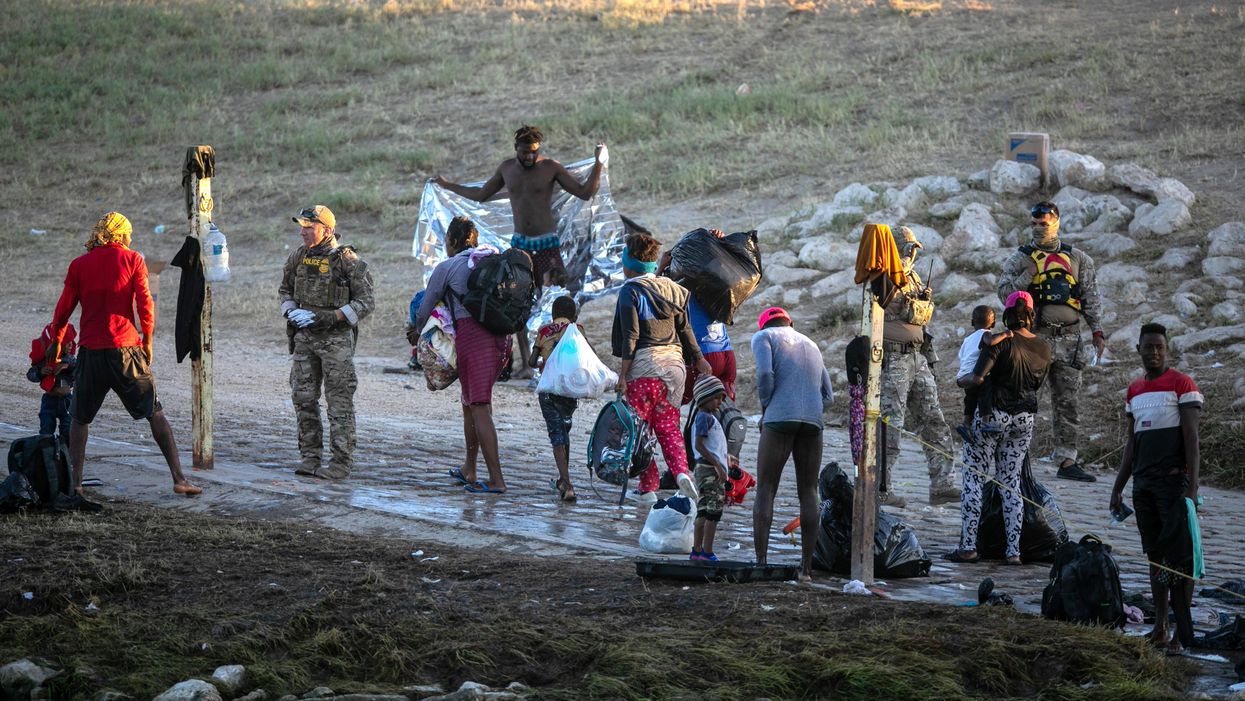The weekslong headlines citing the number of migrant encounters by the U.S. Border Patrol routinely venture into the sensational. And certain activist segments, including extremist anti-immigration organizations, are all too eager to amplify the news and add their own false narratives into the public sphere.
The hyperbolic narrative was further complicated by the recent feverish rush out of Afghanistan and the spike of Haitian refugees that resulted in many stories about their makeshift camp in Del Rio, Texas, and the response from border authorities.
The common thread in the misleading claims is the desire by anti-immigrant voices to deceive average Americans, causing alarm by insinuating that millions of people are coming to our shores. Even worse, that migrants are making our country into a "cesspool of humanity," as former President Donald Trump recently claimed.
What the data shows is that numbers for monthly encounters at the U.S.-Mexico border have fluctuated for years. Reasons vary, and are often cyclical, but also driven by factors in the home countries of those who come to America just as many generations of migrants have in the past.
The pandemic, of course, resulted in very few people travelling in 2020. An increase in 2021, with conditions improving and the economy moving toward recovery, was inevitable. The numbers for border encounters also skyrocketed twice under Trump — first in April 2019 and again during the summer of 2020.
The principal factor driving the statistics for border encounters is something called Title 42, an obscure statute that allows the government to close the border if the Centers for Disease Control and Prevention believes that there is a serious public health danger.
The invocation of Title 42 started in March of 2020, under Trump's administration, citing public health concerns despite objections from the CDC's top doctors.
Other public health experts weighed in, agreeing with the CDC. Dr. Anthony So, of the School of Public Health at Johns Hopkins University, wrote to then-CDC Director Robert Redfield: "The decision to halt asylum processes 'to protect the public health' is not based on evidence or science."
The Title 42 rationale for turning away refugees, asylum seekers and other migrants has been kept in place by the Biden administration.
Prior to the implementation of Title 42, migrants encountered by authorities were supposed to be processed through established procedures, according to U.S. law, that may include removal or detention — or worse if someone has a criminal record, for example.
Under Title 42, everyone is blindly turned away, with no processing, and with no screening for Covid-19, despite the purported rationale. Border Patrol agents expel the vast majority of crossers immediately, sometimes within hours of being apprehended.
The immediate expulsions not only run counter to our own laws and established procedures, but they allow for migrants to repeatedly attempt crossings within a short period of time, creating backlogs of people waiting to be processed, applying for asylum, etc.
The reality is that while Title 42 drives the statistical number of encounters up, the actual number of people crossing and attempting to cross does not necessarily fluctuate wildly over time. For example, without the repeat crossers who can make multiple attempts thanks to Title 42, the numbers for the first few months of fiscal 2021 would look nearly identical to fiscal 2019, before the pandemic.
The rising number of "encounters" spurs the attention-grabbing and often sensationalistic headlines of record-setting border apprehensions that often serve as an excuse to tack on additional demonstrably false claims that we have "open borders" or that illegal immigrants are flooding the entire country.
But facts prove otherwise. The truth is, by far the most important factor that contributes to the problem of illegal immigration is the lack of suitable options for legal immigration, a point to which most Americans are oblivious since they, thankfully, never have to deal with an immigration regime so opaque and bureaucratic that it can take over 20 years to immigrate legally.
But even that only applies to a select few. Immigration policy expert David Bier sheds much needed light, explaining that "under U.S. immigration law, it is illegal for anyone in the world to travel or immigrate to the United States unless they fall into very narrow exceptions." Bier continues: "Effectively, if they don't qualify as a select few high skilled workers or family members of U.S. citizens, they can't come legally."
While the root is easy to identify for anyone who looks beyond the headlines, the solution is complicated by politicians who lack the courage and will to work constructively toward a modern and streamlined process for legal immigration. Until then, the misleading headlines and nasty rhetoric are likely to continue.




















Why does the Trump family always get a pass?